4.1.7
Writing a Hypothesis & Prediction
Writing a Hypothesis & Prediction
Writing a Hypothesis & Prediction
A prediction and a hypothesis are different. However, experiments should include both a hypothesis and a prediction.
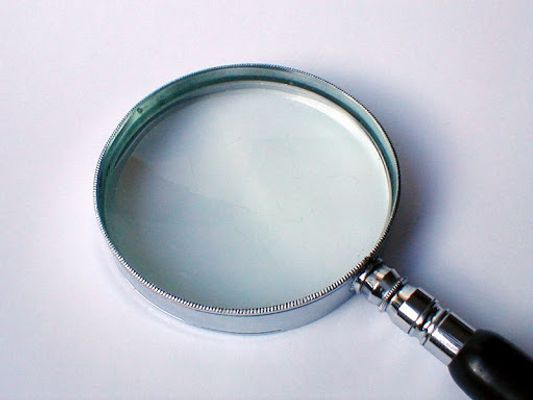

Hypothesis
Hypothesis
- A hypothesis is developed from an idea about a particular scientific concept.
- A hypothesis is normally generated from an idea or observation.
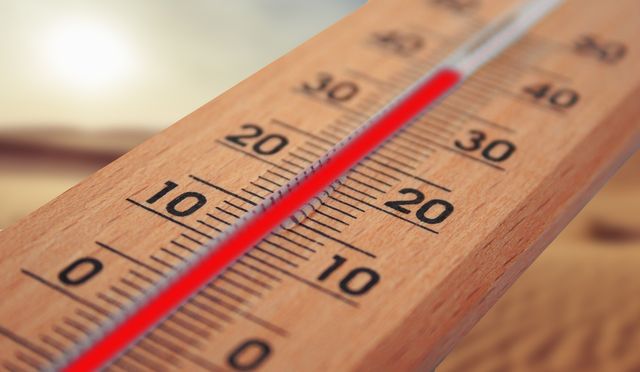

Examples of hypotheses
Examples of hypotheses
- Examples of hypotheses include:
- Adding water to a sunflower will help it grow.
- An increase in temperature will increase the rate of reaction.
- A change in pH will affect how an enzyme works.
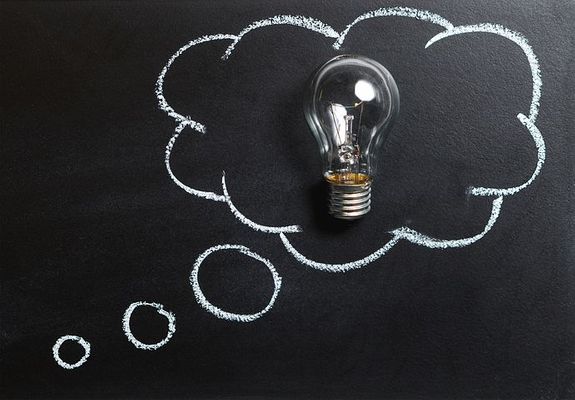

Prediction
Prediction
- A prediction can be made after the hypothesis.
- The prediction will explain how your hypothesis can be tested.
- The prediction states a relationship between two variables.
- The stated relationship should be suggested in the hypothesis.
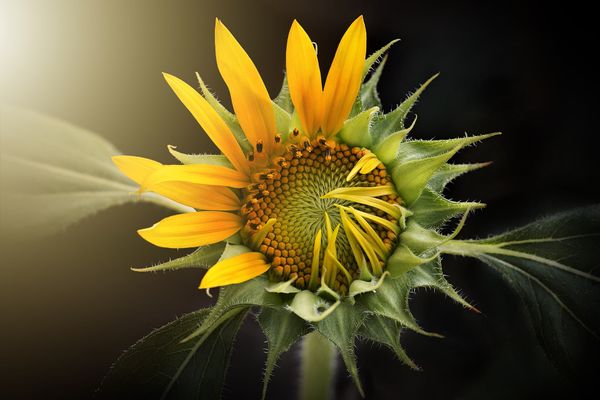

Examples of predictions
Examples of predictions
- Examples of predictions include:
- If I increase the amount of water I use to water the plant, it will grow more.
- If I decrease the temperature, the rate of reaction will decrease.
- If I increase the pH, the rate of activity will increase.
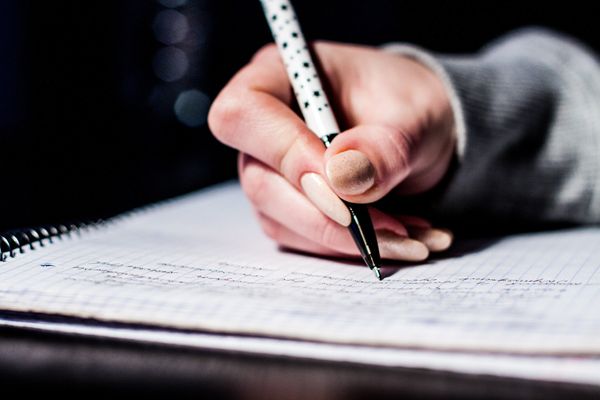

The word 'because'
The word 'because'
- Once you have written the prediction, you can extend your work by using the word ‘because’.
- The word 'because' allows you to explain your prediction.
- Use your scientific knowledge to explain your prediction.
1Biology
1.1Cells, Tissues & Organs
1.1.1Microscopes
1.1.2Magnification
1.1.3Multicellular Organisms
1.1.4Tissues
1.1.5Organs
1.1.6Unicellular Organisms
1.1.7Diffusion
1.1.8Factors Affecting Diffusion
1.1.9Plant Cells
1.1.10Cellulose
1.1.11Plant Tissues
1.1.12Leaves
1.1.13Animal Cells
1.1.14Comparing Animal & Plant Cells
1.1.15How to Make a Model Animal and Plant Cell
1.1.16Specialised Cells
1.1.17Stem Cells
1.1.18Uses of Stem Cells
1.1.19Disadvantages of Stem Cells
1.1.20Blood Components
1.1.21Platelets
1.1.22End of Topic Test - Cells & Organisation
1.1.23The Lungs
1.1.24Breathing
1.1.25Plant Gas Exchange
1.1.26Health
1.1.27End of Topic Test - Living Organisms
1.2Reproduction & Variation
1.2.1Reproduction in Humans
1.2.2Male Reproductive System
1.2.3Female Reproductive System
1.2.4Gestation
1.2.5Pregnancy
1.2.6Puberty
1.2.7The Menstrual Cycle
1.2.8Reproduction in Plants
1.2.9Pollination
1.2.10Dispersal Method
1.2.11Variation
1.2.12Causes of Variation
1.2.13Inheritance
1.2.14Adaptations and Evolution
1.2.15Species & Selective Breeding
1.2.16Genetic Conditions
1.2.17End of Topic Test - Reproduction & Variation
1.3Ecological Relationships & Classification
1.3.1Species Interdependence
1.3.2Food Chains & Webs
1.3.3Changes to Food Webs 1
1.3.4Changes to Food Webs 2
1.3.5Relationships in an Ecosystem
1.3.6The Impact of Environmental Change
1.3.7Decomposers
1.3.8Decay
1.3.9Assessing Ecosystems
1.3.10Ecological Sampling
1.3.11Required Practical - Estimating Population Size
1.3.12Pyramids of Number and Biomass
1.3.13Classification of Living Organisms
1.3.14Competition Between Organisms
1.3.15Adaptations of Plants
1.3.16Natural Selection
1.3.17Evidence for Evolution
1.3.18Environmental Changes & Extinctions
1.3.19The Importance of Biodiversity
1.3.20Bioaccumulation
1.3.21End of Topic Test - Material Cycles & Energy
1.4Digestion & Nutrition
1.4.1Balanced Diets
1.4.2Vitamins & Minerals
1.4.3Protein
1.4.4Lipids, Oils and Fats
1.4.5Carbohydrates
1.4.6Starch
1.4.7Energy Needs
1.4.8Dietary Fibre
1.4.9Diseases Caused by Nutritional Deficiencies
1.4.10Digestion
1.4.11Plant Nutrition
1.4.12Enzymes in Digestion
1.4.13Required Practical - Enzymes in Digestion
1.5Plants & Photosynthesis
1.6Biological Systems & Processes
1.6.1Living Organisms
1.6.2Dichotomous Keys
1.6.3Biomechanics
1.6.4Muscles
1.6.5The Skeleton
1.6.6Measuring Forces
1.6.7Antagonistic Muscle Pairings
1.6.8The Respiratory System
1.6.9Structure & Function of the Gas Exchange System
1.6.10Breathing
1.6.11Respiration
1.6.12Respiration During Exercise
1.6.13Anaerobic Respiration
1.6.14Lactic Acid
1.6.15Effects of Smoking on the Respiratory System
1.6.16Balanced Diets
1.6.17Human Growth & Development
1.6.18DNA
1.6.19Alleles
1.6.20Genotype vs Phenotype
1.6.21Punnett Squares
1.6.22Joints
1.6.23The Renal System
1.6.24The Double Circulatory System
1.6.25Heart and Blood
1.6.26Blood Vessels
1.6.27Glucose
1.6.28Glucose and Diabetes
1.6.29The Effects of Recreational Drug Use
1.6.30Human Illnesses
1.6.31Antibiotics
1.6.32Vaccinations
1.6.33How Antibiotics and Vaccines Work
1.6.34Mental Health
2Chemistry
2.1Particles
2.1.1Particles
2.1.2States of Matter
2.1.3Changes of State
2.1.4Properties of States of Matter
2.1.5Diffusion
2.1.6Changing State
2.1.7Pressure
2.1.8Temperature Increase in a Gas
2.1.9Conservation of Mass
2.1.10Purity of Substances
2.1.11Pure Substances
2.1.12Evaporation
2.1.13Mixtures
2.1.14Separating Mixtures
2.1.15Distillation
2.1.16Chromatography
2.1.17Solubility
2.1.18Investigating Solubility
2.2Chemical Reactions
2.3Atoms, Elements, Compounds
2.4The Periodic Table
2.5Materials & the Earth
2.5.1The Composition of The Earth
2.5.2The Structure of the Earth
2.5.3Igneous Rocks
2.5.4Sedimentary Rocks
2.5.5Metamorphic Rocks
2.5.6The Rock Cycle
2.5.7Physical Weathering
2.5.8Chemical Weathering
2.5.9Biological Weathering
2.5.10The Formation of Fossils
2.5.11Crude Oil
2.5.12End of Topic Test - Earth
2.5.13The Earth's Early Atmosphere
2.5.14The Earth's Atmosphere Today
2.5.15Oxygen in the Atmosphere
2.5.16Carbon Dioxide in the Atmosphere
2.5.17Greenhouse Gases
2.5.18Climate Change
2.5.19Resources
2.5.20Recycling
2.5.21Ceramics
2.5.22Polymers
2.5.23Composites
2.5.24End of Topic Test - Materials
2.5.25End of Topic Test - Polymers
2.6Reactivity
2.6.1Ions
2.6.2Ionic Bonding
2.6.3State Symbols
2.6.4Balancing Chemical Equations
2.6.5Relative Formula Mass
2.6.6Calculating the Relative Formula Mass
2.6.7The Reactivity Series
2.6.8Carbon & The Reactivity Series
2.6.9Displacement Reactions
2.6.10Displacement Reactions - Halogens
2.6.11Alloys
2.6.12Metal Alloys
2.7Energetics
2.8Properties of Materials
3Physics
3.1Energy
3.1.1Energy Stores & Pathways
3.1.2Energy Transfers
3.1.3Common Energy Transfers
3.1.4Wasted Energy
3.1.5Efficiency of Energy Transfer
3.1.6Sankey Diagrams
3.1.7Heat & Temperature
3.1.8Heat Transfer
3.1.9Conductors vs Insulators
3.1.10Reducing Energy Transfers
3.1.11Energy & Power
3.1.12Energy in Food
3.1.13Calories
3.1.14Food Labels
3.1.15Energy at Home
3.1.16Fuel Bills
3.1.17Calculating Fuel Bills
3.1.18Non-Renewable Energy - Fossil Fuels
3.1.19Other Non-Renewables
3.1.20Renewable Energy - Air & Ground
3.1.21Renewable Energy - Water
3.1.22End of Topic Test - Energy
3.2Forces & Motion
3.2.1Forces
3.2.2Contact Forces
3.2.3Balanced Forces
3.2.4Force Diagrams & Resultant Forces
3.2.5Free Body Diagram - Uses
3.2.6Force & Acceleration
3.2.7Gravity
3.2.8Weight
3.2.9Pressure
3.2.10Speed
3.2.11Relative Motion
3.2.12Friction
3.2.13Water & Air Resistance
3.2.14Distance-Time Graphs
3.2.15Moments
3.2.16Levers
3.2.17Work
3.2.18Machines
3.2.19Work & Machines
3.2.20Elasticity
3.2.21Elasticity - Hooke's Law
3.2.22Density
3.2.23Floating & Sinking
3.2.24End of Topic Test - Forces & Motion
3.2.25Vacuums
3.2.26Thermal Energy & Conduction
3.2.27Convection & Radiation
3.2.28Evaporation
3.3Waves
3.3.1Waves
3.3.2Types of Waves
3.3.3Observing Waves
3.3.4Wave Speed
3.3.5Earthquakes
3.3.6Sound Waves
3.3.7Uses of Sound Waves
3.3.8The Interactions of Sound with Different Mediums
3.3.9Reflecting Sounds
3.3.10The Speed of Sound
3.3.11Measuring the Speed of Sound
3.3.12The Hearing Range of Humans
3.3.13The Human Ear
3.3.14Light Waves
3.3.15Reflection
3.3.16Drawing a Reflected Image
3.3.17Refraction
3.3.18The Human Eye
3.3.19The Eye as a Pinhole Camera
3.3.20Lenses
3.3.21Colour
3.3.22Seeing Colour
3.3.23Colours of Light
3.3.24Drawing Waves
3.3.25Wave Interactions
3.3.26Comparing Sound & Light
3.3.27End of Topic Test - Waves
3.3.28End of Topic Test - Sound
3.4Electricity & Magnetism
3.4.1Circuit Symbols
3.4.2Resistors & Diodes
3.4.3Electric Current
3.4.4Measuring Current
3.4.5Potential Difference
3.4.6Series Circuits
3.4.7Parallel Circuits
3.4.8Resistance
3.4.9Charges
3.4.10Static Electricity
3.4.11Magnets
3.4.12Magnetic Fields
3.4.13The Earth's Field
3.4.14Electromagnetism
3.4.15Uses of Electromagnets
3.4.16Strength of Magnetic Fields
3.4.17Circuit Symbols HyperLearning
3.5Matter
3.5.1Physical Reactions
3.5.2Changes of State
3.5.3Particles
3.5.4Density
3.5.5Density & the Particle Model
3.5.6The Equation for Density
3.5.7Dissolving
3.5.8Brownian Motion
3.5.9Diffusion
3.5.10Filtration
3.5.11Solids
3.5.12Liquids
3.5.13Gases
3.5.14Weight & Mass
3.5.15Gravity
3.5.16Gravitational Field Strength
3.5.17Gravity in Space
3.5.18Atmospheric Pressure
3.5.19Liquid Pressure
3.5.20End of Topic Test - Matter
4Thinking Scientifically
4.1Models & Representations
4.1.1Strengths & Limitations of Models
4.1.2Symbols & Formulae to Represent Scientific Ideas
4.1.3Analogies in Science
4.1.4Changing Models – Atomic Theory
4.1.5Working Safely in the Lab
4.1.6Variables
4.1.7Writing a Hypothesis & Prediction
4.1.8Planning an Experiment
4.1.9Maths Skills for Science
4.1.10Drawing Scientific Apparatus
4.1.11Observation & Measurement Skills
4.1.12Types of Data
4.1.13Graphs & Charts
4.1.14Bias in Science
4.1.15Conclude & Evaluate
Jump to other topics
1Biology
1.1Cells, Tissues & Organs
1.1.1Microscopes
1.1.2Magnification
1.1.3Multicellular Organisms
1.1.4Tissues
1.1.5Organs
1.1.6Unicellular Organisms
1.1.7Diffusion
1.1.8Factors Affecting Diffusion
1.1.9Plant Cells
1.1.10Cellulose
1.1.11Plant Tissues
1.1.12Leaves
1.1.13Animal Cells
1.1.14Comparing Animal & Plant Cells
1.1.15How to Make a Model Animal and Plant Cell
1.1.16Specialised Cells
1.1.17Stem Cells
1.1.18Uses of Stem Cells
1.1.19Disadvantages of Stem Cells
1.1.20Blood Components
1.1.21Platelets
1.1.22End of Topic Test - Cells & Organisation
1.1.23The Lungs
1.1.24Breathing
1.1.25Plant Gas Exchange
1.1.26Health
1.1.27End of Topic Test - Living Organisms
1.2Reproduction & Variation
1.2.1Reproduction in Humans
1.2.2Male Reproductive System
1.2.3Female Reproductive System
1.2.4Gestation
1.2.5Pregnancy
1.2.6Puberty
1.2.7The Menstrual Cycle
1.2.8Reproduction in Plants
1.2.9Pollination
1.2.10Dispersal Method
1.2.11Variation
1.2.12Causes of Variation
1.2.13Inheritance
1.2.14Adaptations and Evolution
1.2.15Species & Selective Breeding
1.2.16Genetic Conditions
1.2.17End of Topic Test - Reproduction & Variation
1.3Ecological Relationships & Classification
1.3.1Species Interdependence
1.3.2Food Chains & Webs
1.3.3Changes to Food Webs 1
1.3.4Changes to Food Webs 2
1.3.5Relationships in an Ecosystem
1.3.6The Impact of Environmental Change
1.3.7Decomposers
1.3.8Decay
1.3.9Assessing Ecosystems
1.3.10Ecological Sampling
1.3.11Required Practical - Estimating Population Size
1.3.12Pyramids of Number and Biomass
1.3.13Classification of Living Organisms
1.3.14Competition Between Organisms
1.3.15Adaptations of Plants
1.3.16Natural Selection
1.3.17Evidence for Evolution
1.3.18Environmental Changes & Extinctions
1.3.19The Importance of Biodiversity
1.3.20Bioaccumulation
1.3.21End of Topic Test - Material Cycles & Energy
1.4Digestion & Nutrition
1.4.1Balanced Diets
1.4.2Vitamins & Minerals
1.4.3Protein
1.4.4Lipids, Oils and Fats
1.4.5Carbohydrates
1.4.6Starch
1.4.7Energy Needs
1.4.8Dietary Fibre
1.4.9Diseases Caused by Nutritional Deficiencies
1.4.10Digestion
1.4.11Plant Nutrition
1.4.12Enzymes in Digestion
1.4.13Required Practical - Enzymes in Digestion
1.5Plants & Photosynthesis
1.6Biological Systems & Processes
1.6.1Living Organisms
1.6.2Dichotomous Keys
1.6.3Biomechanics
1.6.4Muscles
1.6.5The Skeleton
1.6.6Measuring Forces
1.6.7Antagonistic Muscle Pairings
1.6.8The Respiratory System
1.6.9Structure & Function of the Gas Exchange System
1.6.10Breathing
1.6.11Respiration
1.6.12Respiration During Exercise
1.6.13Anaerobic Respiration
1.6.14Lactic Acid
1.6.15Effects of Smoking on the Respiratory System
1.6.16Balanced Diets
1.6.17Human Growth & Development
1.6.18DNA
1.6.19Alleles
1.6.20Genotype vs Phenotype
1.6.21Punnett Squares
1.6.22Joints
1.6.23The Renal System
1.6.24The Double Circulatory System
1.6.25Heart and Blood
1.6.26Blood Vessels
1.6.27Glucose
1.6.28Glucose and Diabetes
1.6.29The Effects of Recreational Drug Use
1.6.30Human Illnesses
1.6.31Antibiotics
1.6.32Vaccinations
1.6.33How Antibiotics and Vaccines Work
1.6.34Mental Health
2Chemistry
2.1Particles
2.1.1Particles
2.1.2States of Matter
2.1.3Changes of State
2.1.4Properties of States of Matter
2.1.5Diffusion
2.1.6Changing State
2.1.7Pressure
2.1.8Temperature Increase in a Gas
2.1.9Conservation of Mass
2.1.10Purity of Substances
2.1.11Pure Substances
2.1.12Evaporation
2.1.13Mixtures
2.1.14Separating Mixtures
2.1.15Distillation
2.1.16Chromatography
2.1.17Solubility
2.1.18Investigating Solubility
2.2Chemical Reactions
2.3Atoms, Elements, Compounds
2.4The Periodic Table
2.5Materials & the Earth
2.5.1The Composition of The Earth
2.5.2The Structure of the Earth
2.5.3Igneous Rocks
2.5.4Sedimentary Rocks
2.5.5Metamorphic Rocks
2.5.6The Rock Cycle
2.5.7Physical Weathering
2.5.8Chemical Weathering
2.5.9Biological Weathering
2.5.10The Formation of Fossils
2.5.11Crude Oil
2.5.12End of Topic Test - Earth
2.5.13The Earth's Early Atmosphere
2.5.14The Earth's Atmosphere Today
2.5.15Oxygen in the Atmosphere
2.5.16Carbon Dioxide in the Atmosphere
2.5.17Greenhouse Gases
2.5.18Climate Change
2.5.19Resources
2.5.20Recycling
2.5.21Ceramics
2.5.22Polymers
2.5.23Composites
2.5.24End of Topic Test - Materials
2.5.25End of Topic Test - Polymers
2.6Reactivity
2.6.1Ions
2.6.2Ionic Bonding
2.6.3State Symbols
2.6.4Balancing Chemical Equations
2.6.5Relative Formula Mass
2.6.6Calculating the Relative Formula Mass
2.6.7The Reactivity Series
2.6.8Carbon & The Reactivity Series
2.6.9Displacement Reactions
2.6.10Displacement Reactions - Halogens
2.6.11Alloys
2.6.12Metal Alloys
2.7Energetics
2.8Properties of Materials
3Physics
3.1Energy
3.1.1Energy Stores & Pathways
3.1.2Energy Transfers
3.1.3Common Energy Transfers
3.1.4Wasted Energy
3.1.5Efficiency of Energy Transfer
3.1.6Sankey Diagrams
3.1.7Heat & Temperature
3.1.8Heat Transfer
3.1.9Conductors vs Insulators
3.1.10Reducing Energy Transfers
3.1.11Energy & Power
3.1.12Energy in Food
3.1.13Calories
3.1.14Food Labels
3.1.15Energy at Home
3.1.16Fuel Bills
3.1.17Calculating Fuel Bills
3.1.18Non-Renewable Energy - Fossil Fuels
3.1.19Other Non-Renewables
3.1.20Renewable Energy - Air & Ground
3.1.21Renewable Energy - Water
3.1.22End of Topic Test - Energy
3.2Forces & Motion
3.2.1Forces
3.2.2Contact Forces
3.2.3Balanced Forces
3.2.4Force Diagrams & Resultant Forces
3.2.5Free Body Diagram - Uses
3.2.6Force & Acceleration
3.2.7Gravity
3.2.8Weight
3.2.9Pressure
3.2.10Speed
3.2.11Relative Motion
3.2.12Friction
3.2.13Water & Air Resistance
3.2.14Distance-Time Graphs
3.2.15Moments
3.2.16Levers
3.2.17Work
3.2.18Machines
3.2.19Work & Machines
3.2.20Elasticity
3.2.21Elasticity - Hooke's Law
3.2.22Density
3.2.23Floating & Sinking
3.2.24End of Topic Test - Forces & Motion
3.2.25Vacuums
3.2.26Thermal Energy & Conduction
3.2.27Convection & Radiation
3.2.28Evaporation
3.3Waves
3.3.1Waves
3.3.2Types of Waves
3.3.3Observing Waves
3.3.4Wave Speed
3.3.5Earthquakes
3.3.6Sound Waves
3.3.7Uses of Sound Waves
3.3.8The Interactions of Sound with Different Mediums
3.3.9Reflecting Sounds
3.3.10The Speed of Sound
3.3.11Measuring the Speed of Sound
3.3.12The Hearing Range of Humans
3.3.13The Human Ear
3.3.14Light Waves
3.3.15Reflection
3.3.16Drawing a Reflected Image
3.3.17Refraction
3.3.18The Human Eye
3.3.19The Eye as a Pinhole Camera
3.3.20Lenses
3.3.21Colour
3.3.22Seeing Colour
3.3.23Colours of Light
3.3.24Drawing Waves
3.3.25Wave Interactions
3.3.26Comparing Sound & Light
3.3.27End of Topic Test - Waves
3.3.28End of Topic Test - Sound
3.4Electricity & Magnetism
3.4.1Circuit Symbols
3.4.2Resistors & Diodes
3.4.3Electric Current
3.4.4Measuring Current
3.4.5Potential Difference
3.4.6Series Circuits
3.4.7Parallel Circuits
3.4.8Resistance
3.4.9Charges
3.4.10Static Electricity
3.4.11Magnets
3.4.12Magnetic Fields
3.4.13The Earth's Field
3.4.14Electromagnetism
3.4.15Uses of Electromagnets
3.4.16Strength of Magnetic Fields
3.4.17Circuit Symbols HyperLearning
3.5Matter
3.5.1Physical Reactions
3.5.2Changes of State
3.5.3Particles
3.5.4Density
3.5.5Density & the Particle Model
3.5.6The Equation for Density
3.5.7Dissolving
3.5.8Brownian Motion
3.5.9Diffusion
3.5.10Filtration
3.5.11Solids
3.5.12Liquids
3.5.13Gases
3.5.14Weight & Mass
3.5.15Gravity
3.5.16Gravitational Field Strength
3.5.17Gravity in Space
3.5.18Atmospheric Pressure
3.5.19Liquid Pressure
3.5.20End of Topic Test - Matter
4Thinking Scientifically
4.1Models & Representations
4.1.1Strengths & Limitations of Models
4.1.2Symbols & Formulae to Represent Scientific Ideas
4.1.3Analogies in Science
4.1.4Changing Models – Atomic Theory
4.1.5Working Safely in the Lab
4.1.6Variables
4.1.7Writing a Hypothesis & Prediction
4.1.8Planning an Experiment
4.1.9Maths Skills for Science
4.1.10Drawing Scientific Apparatus
4.1.11Observation & Measurement Skills
4.1.12Types of Data
4.1.13Graphs & Charts
4.1.14Bias in Science
4.1.15Conclude & Evaluate

Unlock your full potential with GoStudent tutoring
Affordable 1:1 tutoring from the comfort of your home
Tutors are matched to your specific learning needs
30+ school subjects covered